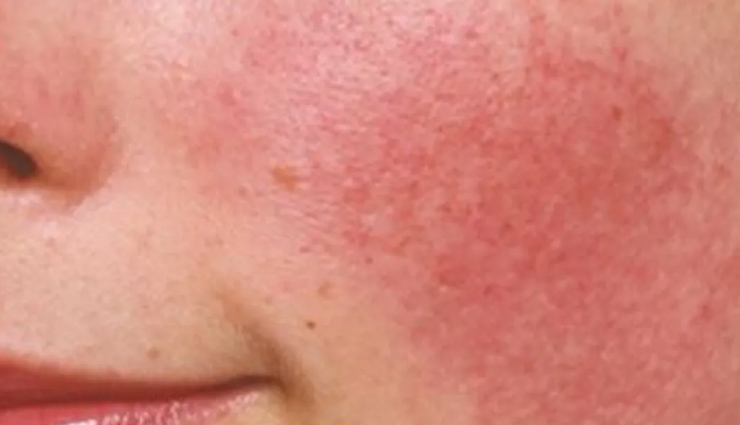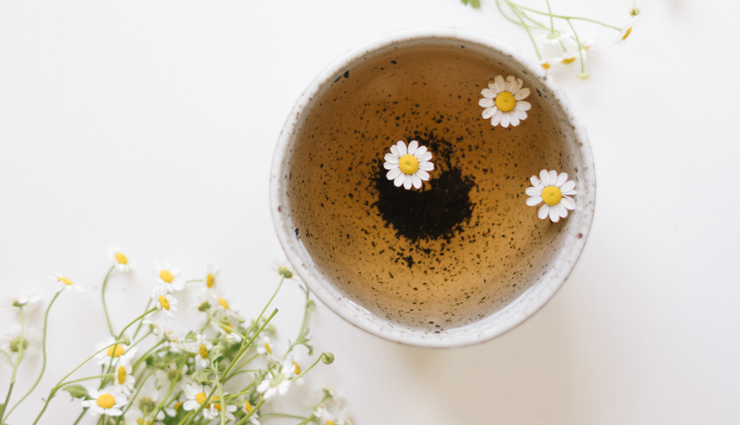- Home›
- Healthy Living›
- 8 Amazing Benefits Of Feverfew
8 Amazing Benefits Of Feverfew
By: Priyanka Maheshwari Thu, 05 Oct 2023 1:14:26

Feverfew boasts numerous advantages, making it an essential natural remedy. While renowned for its effectiveness in addressing chronic headaches and migraines, this plant offers a wide array of additional health benefits. European and Greek herbalists have relied on feverfew for centuries, not only to treat fevers resulting from insect bites but also for its potential to alleviate pain, ease cramps, and reduce anxiety. This article delves into the various benefits of feverfew, offers insights on how to maximize its advantages, and provides information on potential side effects. Continue reading to explore the full spectrum of what feverfew has to offer.
What Is Feverfew? How Does It Work?
The botanical name for feverfew is Tanacetum parthenium, although it is also recognized by various other names such as bachelor’s buttons, Chrysanthemum parthenium, and featherfew.
A crucial component found in feverfew is parthenolide, known for its ability to alleviate muscle spasms and address inflammation. The plant also contains other active compounds, including flavonoid glycosides and pinenes.
The plant's composition comprises:
- Sesquiterpene lactones, primarily parthenolide
- Volatile oils such as camphor, which exhibit antibacterial properties
- Flavonoids, known for their antioxidant, antibacterial, and anti-inflammatory properties.
How Does Feverfew Benefit You?

# Feverfew Relieves Migraines
In a research study, individuals who consumed feverfew for approximately six months experienced reduced occurrences of migraines. Other studies revealed that feverfew surpassed a placebo in effectively managing the intensity and frequency of migraine headaches.
Migraines could be triggered by prostaglandin, a natural substance that dilates blood vessels and induces symptoms. Parthenolide, present in feverfew, might inhibit prostaglandin, potentially aiding in migraine treatment and providing pain relief.

# May Help Treat Depression And Anxiety
Further research is necessary in this area; however, studies conducted on mice indicate that feverfew might alleviate symptoms associated with depression and anxiety.

# Might Relieve Menstrual Cramps
Feverfew acts as an antispasmodic, aiding in the regulation of menstrual periods. This effect can alleviate cramps associated with irregular periods and also prove beneficial in treating premenstrual and menstrual headaches.

# May Ease Arthritis Pain
Feverfew hampers the impact of polymorphonuclear leukocyte granules, which can trigger arthritis pain. These granules, released by immune cells during infections and allergic reactions, are affected by feverfew's properties.
Traditionally, feverfew has been employed to alleviate arthritis. However, more research is needed to understand its direct effects on individuals suffering from arthritis.

# Can Aid Cancer Treatment
Studies indicate a potential leukemia treatment derived from parthenolide, a potent component of feverfew. This compound was discovered to target leukemia at the stem cell level, a significant breakthrough considering existing cancer treatments often lack effectiveness at this depth to eradicate cancer cells.
Parthenolide in feverfew also exhibited inhibitory effects on three human cancer cell lines. According to the National Cancer Institute, feverfew has the ability to inhibit or even eliminate prostate cancer stem cells, as reported.

# Fights Inflammation
Historically, this plant has been utilized for its anti-inflammatory properties. In a study involving mice with hepatitis, the parthenolide found in feverfew reduced inflammatory cytokines.
The anti-inflammatory attributes of parthenolide have promising implications in the creation of anti-inflammatory agents. Additionally, another study revealed that parthenolide can safeguard the skin from inflammation, suggesting its potential application in treating inflammatory skin conditions and skin irritations.

# Can Prevent Blood Clots
Feverfew has the ability to hinder platelet activity, preventing the formation of blood clots. Under normal circumstances, blood flows smoothly through our arteries and veins. However, the formation of a clot disrupts this smooth flow and, if left untreated, can lead to severe consequences, even death. This condition is known as thrombosis. Research studies have highlighted feverfew's anti-thrombotic potential, shedding light on its ability to counteract this dangerous condition.

# Helps Treat Dermatitis
Dermatitis refers to skin inflammation. Feverfew has the ability to diminish damaged skin cells and inflammation, potentially enhancing skin appearance.
In a study, feverfew extracts (with removed parthenolide) exhibited strong anti-inflammatory effects on human skin equivalents.
These are the advantages of feverfew. Now, the question remains: how can you harness these benefits? How can you integrate feverfew into your skincare routine? Discover the answers in the following section.

How Do You Use Feverfew?
Feverfew is accessible in various forms, including capsules, tablets, tinctures, and liquid extracts. Additionally, you can prepare feverfew tea using the following method:
Begin by pouring a cup of boiling water over a tablespoon of dried or fresh feverfew leaves. Allow it to steep for 30 minutes to an hour. The longer the steeping time, the stronger the tea. Afterward, strain the leaves and serve.
Determining the appropriate dosage is challenging due to insufficient evidence. It varies based on factors such as gender, age, and medical history. Anecdotal evidence indicates potential digestive issues and disturbances in sleep cycles for some individuals. Thus, consulting with your healthcare provider is crucial to establish the correct dosage.
Exercise caution before consumption, as feverfew may have adverse effects.
What Are The Side Effects Of Feverfew?
# Potential Concerns During Pregnancy and Breastfeeding
Consuming feverfew orally may lead to early contractions and miscarriage, making it crucial for pregnant women to avoid its intake. There isn't sufficient data available regarding the safety of feverfew for breastfeeding women. To err on the side of caution, it is advisable for them to abstain from using it.
# Risk of Bleeding Disorders and Surgical Complications
Feverfew has the potential to slow down blood clotting, increasing the risk of bleeding in susceptible individuals. If you have a bleeding disorder and high blood pressure, it's essential to use feverfew cautiously.
These same properties can cause excessive bleeding during or after surgery. To mitigate risks, it's recommended to refrain from taking feverfew at least two weeks before any scheduled surgical procedure.
# Potential Allergic Reactions
Individuals allergic to ragweed, marigolds, daisies, and chrysanthemums may also have an allergic reaction to feverfew. Hence, those with known allergies to these plants should avoid feverfew to prevent adverse reactions.





